"Quantifighters, Are You Ready?": Story of A Student-initiated Study Group at Peking University Global Risk Political Analysis Lab
Background: "Quantifighter, R U Ready?" (QRUR) is a student-initiated learning mechanism under the Peking University Global Risk Political Analysis Lab. It is aimed at students from various majors who are interested in cultivating social science thinking and data analysis skills.
QRUR's learning process consists of three progressively advanced stages. In the first stage, students grasp the basic forms of social science data and R language analysis tools through group learning and discussions. Moving into the second stage, students, guided by teachers, choose research topics based on their interests, collect, organize, and analyze relevant data to discover and address research questions. The main task and goal of the third stage are to learn how to write publishable research papers on the foundation of the previous stages and present research in the Lab's paper workshops.
The initiator and convener of the first QRUR session are Huang Yuming, a 2022 master's student from the School of International Relations at Peking University. Under Yuming's leadership, the first group of students has undergone two months of group learning, completing four chapters of self-study materials. As a pioneering group, the students demonstrated initiative, creativity, rigorous self-discipline, and collaborative teamwork in their learning.
The following are the shared learning philosophies, methods, and insights of the group members.
In September of this year, upon hearing about the establishment of the Global Risk Political Analysis Lab at Peking University, we were very curious, especially about what learning resources and organizational forms the Lab would provide for students. So, we proactively contacted the teachers in the Lab, and through our communication with them, we learned that the Lab would try different ways to create a learning atmosphere and stimulate enthusiasm for learning. We had already been reflecting on the current learning methods of students, which tended to be overly inclined to passively receive knowledge from teachers, leave separately after class, and individually digest what was learned, lacking opportunities for mutual communication. This situation wasted the excellent peers and complete disciplinary system of Peking University.
This is true even for students in the same major, not to mention the possibility of students from different majors discussing common interests. In addition, the current quantitative learning resources in our School of Social Sciences are scattered, and due to time constraints, courses are relatively weak in operability. Students also feel their own deficiencies but are frustrated by the lack of channels and peers for joint learning and communication.
Quantitative research learning is different from general knowledge learning; it emphasizes practical operation. Based on specific problems, it involves using available methods and tools to systematically process and analyze information to provide well-founded explanations. Working in isolation ultimately yields half the results. A simple idea from peers can make a significant difference. This idea could be simple R language programming, conceptual inspiration for quantitative methods, or even a paradigm shift stumbled upon by chance. All of these can bring enlightenment and clarity.
However, all of this requires the foundation of like-minded companions to learn and strive together, to achieve interdisciplinary learning and communication truly, and to apply what is learned. We are not uninterested in interdisciplinary communication or indifferent to academic communities; we just lack a platform to gather for learning and sharing. So, we contacted more than ten students from different departments who were interested in quantitative analysis methods. Leveraging the platform of the risk Lab and with the help, guidance, and planning of Lab teachers, we established the QRUR mechanism. This allows us to gather together due to a common interest in learning, mutually exchange ideas, and explore new topics collaboratively.
Inspired by this, we embarked on a journey of learning quantitative methods together, calling ourselves "Quantifighters."
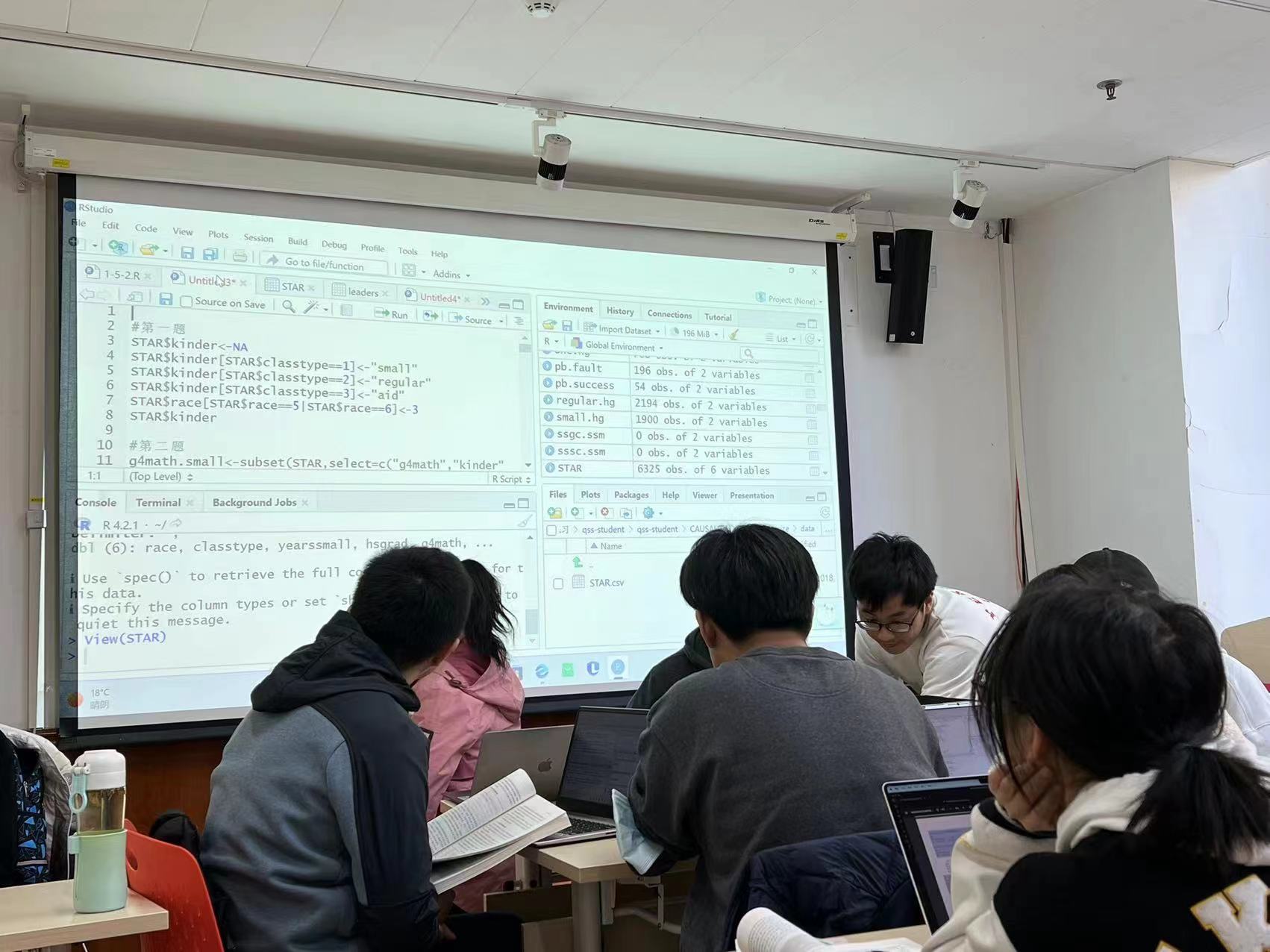
Group Discussion
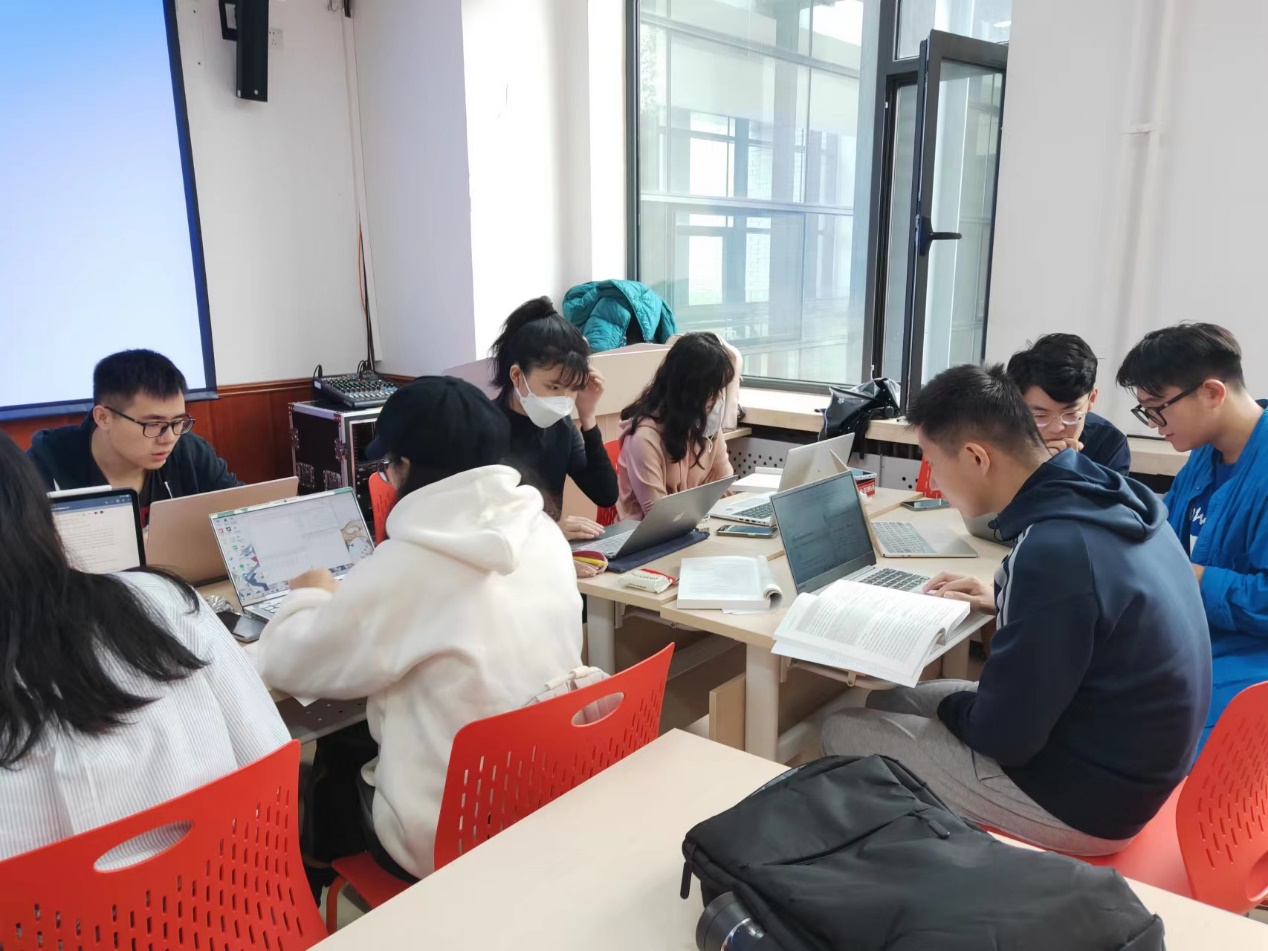
Group Learning
Group Philosophy
A. Initiative
Students take the initiative to organize and participate in a weekly workshop under the guidance of professors and with the help of resources from the Lab.
B. Interdisciplinarity
Members of the study group come from a diversity of departments at PKU. Through regular meetings and study sessions, students can learn from each other about different fields and disciplines across social sciences with common methods and shared goals and missions.
C. Implementation
By getting their hands “dirty” with data and code, students can get a better grip on the applications of quantitative tools to social science research questions.
Group Members Discussing
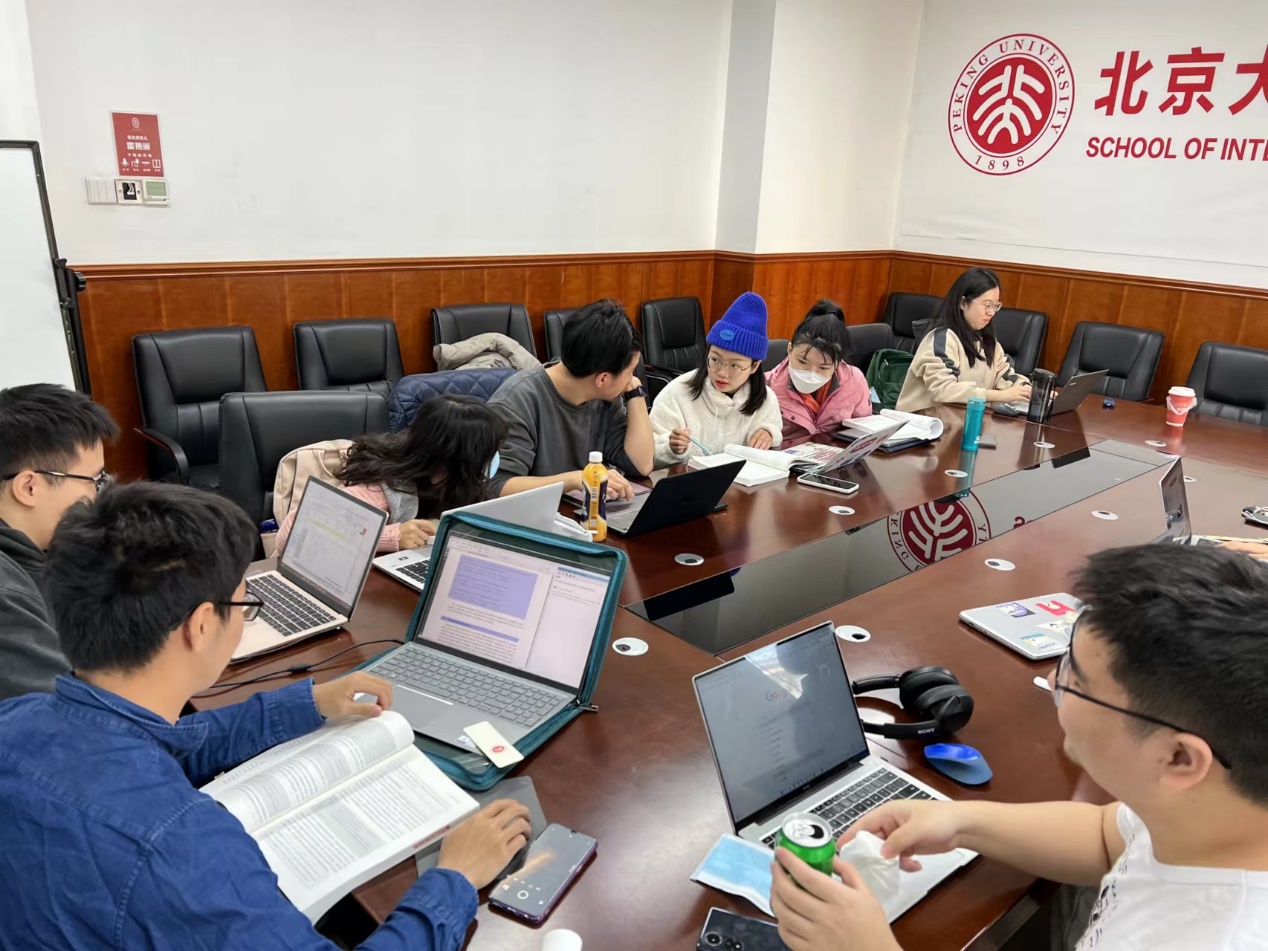
Group Discussion
Learning Objectives
Short-term Goals: Utilize the resources of the Global Risk Political Analysis Lab to provide a spontaneous learning and exchange platform for students interested in quantitative methods but lacking a foundation. Supplement with regular Q&A sessions and discussions led by Lab teachers.
Medium-term Goals: While mastering tools, focus on cultivating quantitative thinking and application abilities. Simultaneously, through communication, collectively improve problem awareness.
Long-term Goals: Ultimately form various interdisciplinary interest groups. Using common research interests, approach topics from a multidisciplinary perspective, apply quantitative tools and thinking learned in the early stages to analyze mutually interesting issues.
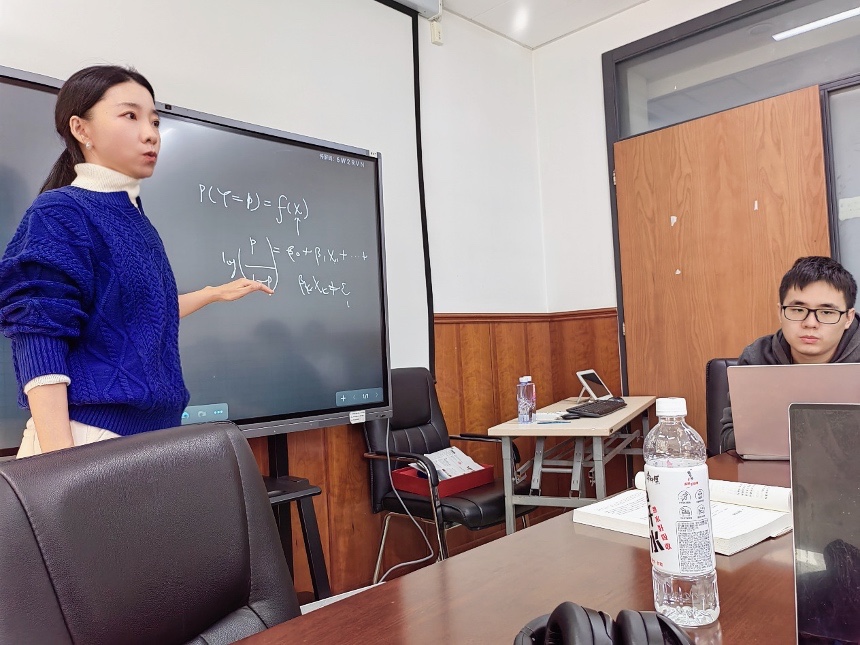
Professor Pang Xun in a Q&A Session
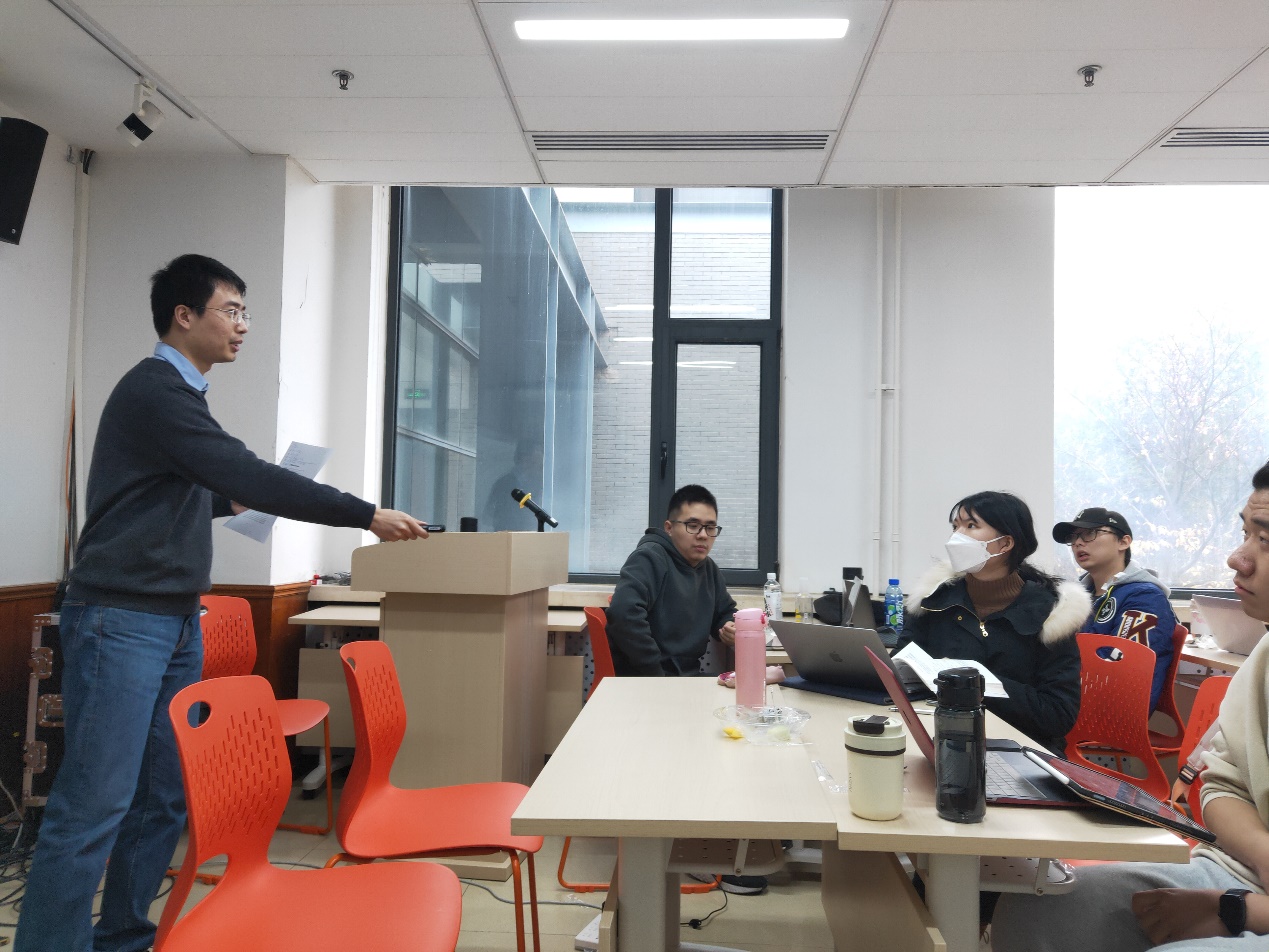
Professor Lu Xiao in a Q&A Session
Operating Mechanism
The current interest group is in its initial stage, using the book "Quantitative Social Science" written by Professor Kosuke Imai from Harvard University as self-learning material. Every week, students read the content independently, summarize key points, doubts, and difficulties, and then discuss them in the weekly interest group meetings on Sundays.
Because quantitative analysis emphasizes practical operation and problem orientation, the choice of "Quantitative Social Science" also hopes that everyone can read and code the shared content before the meeting and complete the exercises after class.
At the end of each chapter, teachers from the Lab will be invited to answer questions based on everyone's understanding. On the basis of everyone being familiar with the chapter, deeper perspectives will be supplemented.
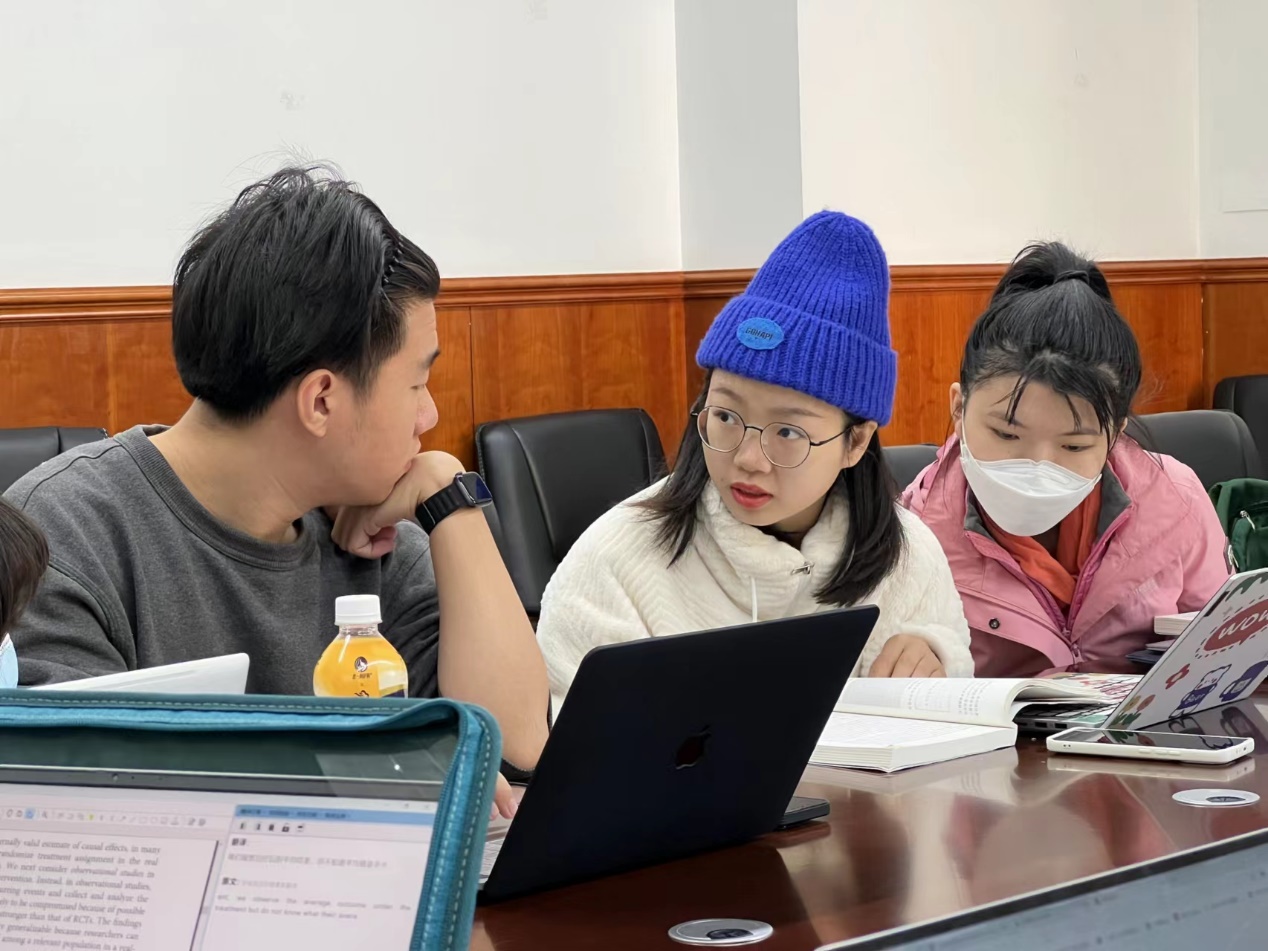
Group Discussion
Testimonials from "Quantifighters"
"I used to think that quantitative learning requires knowledge of statistics and related subjects. As a pure liberal arts student, even if I understand the importance of quantification, it is challenging to find an entry point for learning. Fortunately, I learned about the existence of the QRUR quantitative learning interest group through a chance conversation.
Unlike other quantitative groups that require background knowledge, participating students may not have a foundation in mathematics. Through spontaneous weekly learning and sharing, we gradually learn the basics of quantification. The differences in the level of students are not due to distance but different sources of thought.
Furthermore, teachers from the Global Risk Political Analysis Lab will regularly give lectures to answer questions. This fully stimulates the enthusiasm of students. I have benefited a lot in such a learning atmosphere and environment. Although it is hard work, it is worth it. Thanks to the teachers and Huang Yuming, the initiator of the interest group. I hope I can persist and eventually apply quantitative research methods to my own research one day."
— Yujie (School of International Studies)
"In the process of learning the textbook, I not only deepened my understanding of basic statistical knowledge but also gradually mastered some programming methods and basic skills of R software. I also understood the meaning and usage of various functions, combining the two to solve practical problems. After a period of study, I went from being completely unfamiliar with R language to having a basic understanding. This journey included the difficulties of contemplation when facing challenges and the refreshing feeling of clarity after problem-solving. The teachers' patient explanations during the Q&A process have given me a clearer and deeper understanding of causal inference, showing me my shortcomings but also strengthening my determination to continue learning."
— Li You (School of Government)
"Through the activities in the club, I was able to acquire the knowledge required to conduct deeper quantitative analysis and to use R more proficiently. Moreover, I was able to learn from my peers as we collaboratively worked through problems or concepts that were harder to understand. I am excited to be able to apply this newfound knowledge in my future research."
— Jeeseon (Yenching Academy)
"Following the pace of the QRUR social science quantitative learning interest group, my R language skills have been continuously improving. In the interest group, everyone is enthusiastic about learning. During the weekly meetings, we actively discuss various issues encountered in the textbook and practical operations, effectively improving my learning efficiency and allowing me to make friends with like-minded people. In addition to the spontaneous discussions among students, the lectures and Q&A sessions from teachers are also valuable resources. They have given me a deeper understanding of the basic concepts, key points, and methods of causal inference, and I look forward to future opportunities to learn from other teachers. I believe that through learning in the interest group, my quantitative research abilities will be solidly improved, becoming a valuable experience in my graduate career."
— Hanting (School of Economics)
"As a liberal arts student with little background in mathematics, learning R language is not easy. However, if you want to align with the cutting-edge research in social science internationally, quantitative research methods are a necessary skill. I am very happy to be able to make up for regrets from my undergraduate stage after entering Peking University's School of International Relations and joining the R language learning group. The textbook chosen by the group is very friendly to beginners. Although there are many mathematical principles that confuse me, the experimental ideas and coding process in the book are relatively easy to understand. Especially the various social science-related cases effectively arouse my enthusiasm. In addition, reading the original English textbook not only allows me to better understand the theoretical logic and the transformation between theoretical logic and software coding technology but also exercises and improves my English proficiency. In the process of group learning, whether it is mutual discussion among students or teachers answering questions, it has improved my interest and motivation in learning in an area where I am not proficient. Several classmates in the same major and I fixed a time each week to learn and discuss R language-related knowledge and issues together to motivate each other. Overall, I am very happy to have this opportunity to learn quantitative research methods and knowledge with my classmates under the guidance of teachers. I have gained a lot!"
— Haoxiang (School of International Studies)
"I gradually began to explore the methodology of quantitative social science in the second semester of my senior year and developed a strong interest in quantitative social science and political science research. Due to starting relatively late and having a relatively weak foundation in mathematics, I have been struggling with the lack of suitable quantitative social science courses or learning platforms at school.
Fortunately, the establishment of the quantitative social science learning group this semester is like the best news for me. Most of the students in the group have not been exposed to quantitative methods in their undergraduate stage but have a strong interest. More importantly, there are like-minded people who also plan to pursue a Ph.D. in political science after obtaining a master's degree. We discuss the optimization methods of R code and study the basic logic of causal inference every Sunday morning in the School of International Relations. What we gain is not only knowledge but also the camaraderie of 'comrades.'
Finally, I sincerely wish all members of the quantitative social science learning group can successfully complete the learning this semester, and I wish the group activities get better and better!"
— Huanzhang (Yenching Academy)
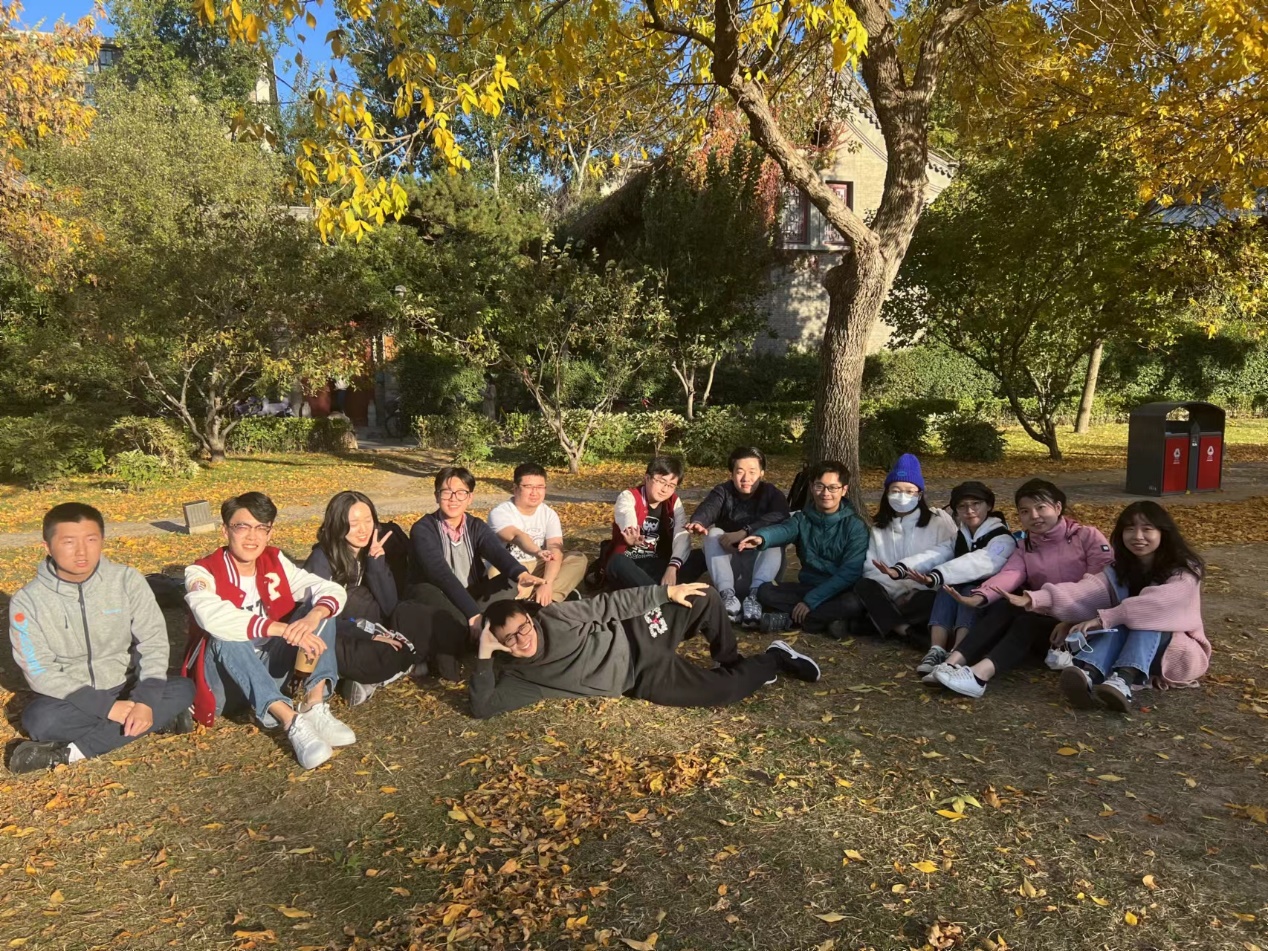
Group photo of Quantifighters
